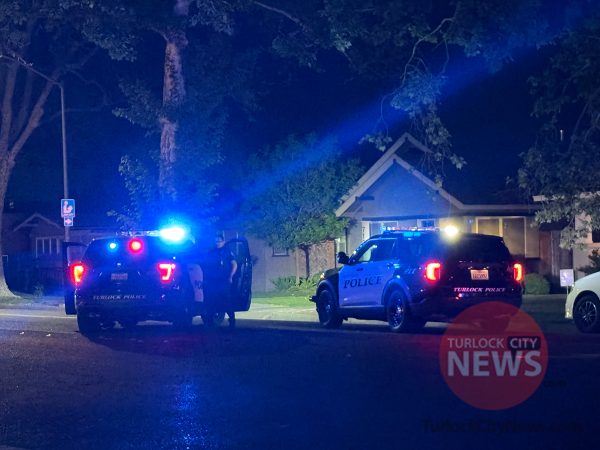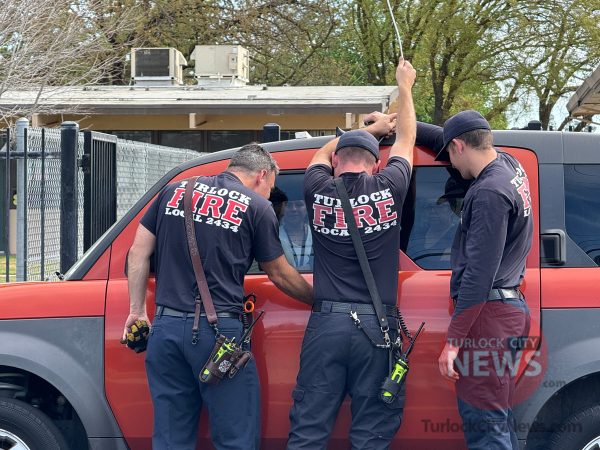At Tuesday evening’s Turlock City Council Meeting, Council considered staff’s agenda request to formally oppose AB2451(Perez) related to the presumptive death benefits for workers compensation claims by peace officers and firefighters, sponsored by California Association of Highway Patrolmen and the California Professional Firefighters.
Existing laws in California specify the time period within which various proceeds may be commenced under provisions of law relating to workers’ compensation. With certain exceptions, a proceeding to collect death benefits is required to be commenced within one year from the date of death, or in some cases, from the last furnishing of benefits. No proceedings, however, may be commenced more than 240 weeks from the date of injury.
Assembly Bill 2451 would provide that certain proceedings related to the collection of death benefits of firefighters and peace officers may be commenced within, but not later than, 480 weeks from the date of injury, and in no event more than one year after the date of death, if specified criteria are met.
Essentially, the bill would create a number of exceptions to the existing restrictions on workers’ compensation death benefits. The bill would create many cases that would vary from individual to individual, depending on the circumstance of the injury suffered by a firefighter or peace officer.
For example, if a firefighter discovered that she or he had cancer three years after retiring, that firefighter would be covered by existing workers’ compensation presumptions. However, if that firefighter were to succumb to cancer, but did so after a fight that lasted 5 years, the firefighter’s estate would be unable to claim a death benefit. AB 2451 says that the firefighter’s estate could claim a death benefit up to one year after the death of a firefighter.
The issue, however, is that AB 2451 does not place any limits on the operation of this exception to the workers’ compensation death benefit timelines. Should a firefighter that had been retired for 20 years suddenly suffer a heart attack and die, his/her family would be able to file for workers’ compensation death benefits under this bill. The bill would also not require a previous workers’ compensation claim or even a strong circumstantial evidentiary claim to the death being tied to an occupational injury.
Many are criticizing the bill for this reason, as many other jobs/careers that hold dangerous encounters for the employees are being excluded from such benefits.
Councilman Forest White pointed this out by stating that U.S. veterans coming back from Iraq do not receive such workers’ compensation death benefits for their families should they pass away years after leaving the service. He also shared a frustration with the term ‘presumptive’ as it suggests that any injury/condition the former firefighter might acquire years after retirement would be automatically assumed to have been caused by the time they served their community as a firefighter.
Arguments in support of the bill, however, state that the existing law is not meeting the needs of California’s firefighters and peace officers. Proponents note that if a firefighter or peace officer dies of an occupational disease more than five years after being diagnosed with the disease, his or her family members are unable to claim a death benefit. With occupational injuries, such as cancer, the timeframe between when the injury was discovered and when the worker succumbs to the injury may be longer than five years.
Arguments in opposition argue that this bill would dramatically increase costs on local governments and counties at a time when budgets are limited and workers’ compensation costs are rising.
Opponents argue that this bill does not act like existing presumptions or exceptions to the statute of limitations on workers’ compensation death benefits, as there are no limits on when such claims could be filed.
The League of California Cities and Assembly Insurance Committee analysis say that the bill is likely to cost state and local governments hundreds of millions of dollars. Should the bill pass, the County of Los Angeles alone places the cost of complying with this bill at $20 million annually.
Nearly the entire City Council was in agreement that the bill is not fair in the way that it was set up.
“Our elected officials are not representing us in this situation,” stated Councilwoman Mary Jackson. “And it’s not that I don’t support the family of our police and fire, it’s just that we have to be fair and we have to be fiscally responsible.”
Jackson also stated that the state legislature would need to start coming up with better solutions, and start working together.
“We’re having the debate they should be having in the legislature right here in Turlock,” stated Mayor John Lazar. “But who is going to hear us?”
Perhaps the most worked up about the Assembly Bill was Councilman Bill DeHart, who expressed opposition to the bill, but was at a crossroads with also wanting to support the firefighters and their families.
“I think it’s ludicrous to pass down to cities complete and total responsibility for deaths that are directly attributed to servicing a community,” DeHart stated. “Do I oppose? Yes. But I oppose a legislature that can’t come up with a better solution more.”
“My vote this evening will be that I support our local responders,” he continued. “I oppose, but I have to vote yes.”
Local firefighters also supported Councilman Bill DeHart during his successful 2010 election bid for a Council seat and donated $16,633.01 to DeHart’s campaign that year, according to the Turlock Firefighters PAC recipient committee campaign statement filed with the Turlock City Clerk’s Office.
Councilwoman Amy Bublak, a Modesto Police Officer, asked to be dismissed from the conversation and vote prior to the discussion.
With Mayor Lazar, Councilwoman Jackson, and Councilman White’s votes in favor of opposing AB 2451, and Councilwoman Bublak’s withheld vote; Councilman DeHart was the lone Council Member to vote against opposing the controversial bill.






